JOURNALISM
Career as a Journalist
There are many types of journalists, from the local beat newspaper reporter to the foreign correspondent, the magazine feature writer to the freelance book reviewer, and so on. It is difficult to pin down the daily routine of an average journalist. Journalists interview sources and review records to assemble, collect, and report information and explore the implications of the facts. Journalism informs, educates, chastises. Do not underestimate the power a journalist holds. Remember the umpteen scams that have been unearthed thanks to the Indian Journalists. Professionals must be able to report quickly and accurately.
More than 80 percent of jorunalists listed time pressure as one of the most distinguishing features of this job. Journalists must maintain a point of view while remaining objective about their subjects, which can be difficult. Sometimes they get too involved in the stories. Interpersonal skills, excellent writing skills, and a reporter's instinct like the ability to accurately assess the significance of obscure and incomplete information are essential to success in this field. The uncertainty of the daily routine makes it difficult to incorporate family, hobbies, and any regularly scheduled plans, but those who detest the predictability of nine-to-five jobs are attracted to journalism because no day would be like the day before or the day after. Long hours and days which have chronic deadline pressure can be significantly negative factors for this career.
When an editor calls you in on a breaking story, you have to be prepared to drop everything; when you're on deadline, you can get crazed trying to write a complicated story in half the time you need. This ball and chain to the offices leads many to resent, and eventually reject, the reporter's life. Some journalists complain about being "under the thumb of Napoleonic editors who control your every word based on their own taste." Journalists who are very much protective of their prose rarely last in this profession, since articles are often edited for publication without their consultation.
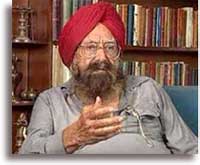
Associated Careers
Journalists who quit often become editors, professors, researchers, and analysts. Many teach in high school and run school papers, others take jobs in whatever industry they once covered as a reporter. Those who leave the field usually do so because of the uncertain lifestyle and the long hours. Most magazines have a fairly rigid heirachy, so you'll certainly know your place in this busy machine. Junior reporters are allocated work from the news desk and submit stories to the news editor.
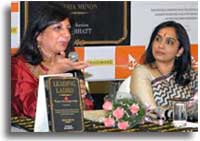
Journalists can never be silent- that is its greatest virtue and its greatest fault. It must speak, and speak immediately according to Henry Anatole Grunwald. Generally speaking the more popular these areas are the more competitive it is, so if you want to enter the world of fashion or music, prepare for competition as these can be difficult areas to get into and tend not to pay as well. What many people see as less attractive areas such as business, finance and IT can prove easier to get into and ultimately more lucrative.
Job Opportunities and Career Prospects
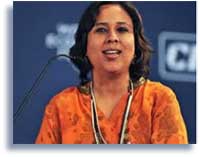
Other degree/diploma, which may also lead to you a job:
- MA in a Literature which might be in English or any other languages, MA in Economics/Commerce/other subject
- MA in Journalism
- MA in Mass Communication & Journalism
- Bachelor/ Master of Mass Communication & Journalism
- MA/ Post Graduate Diploma in Mass Communication
- MA/ Post Graduate Diploma in Broadcast Journalism
- MA/ Post Graduate Diploma in Television Journalism
- MA/ Post Graduate Diploma in Electronic Journalism
- MBA/ Post Graduate Diploma in Management
The scope of journalism is wide and is increasing with greater diversification of the media. The information explosion has brought home the urgency of being able to express more diverse and complex ideas, news and viewpoints more quickly and concisely than ever before. New publications appear on the stands each year. Vernacular papers are mostly widespread in circulation and the number is growing, creating a larger demand for writers with an ability to grasp situations and translate them into words in the shortest possible time.
Due to the boom in the dot com companies, there has been an increase in the demand for editors and freelancers. Almost all major newspapers and news agencies in India have a presence on the Internet, making it one of the easiest ways to get to know about the happenings in India. Hence having knowledge of computer graphics and Internet related topics should be an added advantage.Channels like CNN, Discovery, NDTV, and newspapers like The Times of India, The Economic Times are great organizations that any journalist would like to work in. If you idolize Karan Thapar, Barkha Dutt, Pronnoy Roy or others like them and you feel the desire to communicate what you believe is important to others, this probably is the best career option for the candidates.
JOURNALIST ASSOCIATION OF INDIA
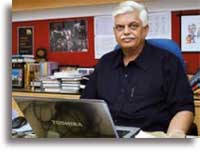
They raise the standards of journalists. Organizing seminars, bringing coaching to journalists who needs feedback and training to increase their proficiency in the industry, dedicated to defending, protects, improves the rights and safety of the journalists and promotion of the media freedom world-wide are also done. It mainly protects and improves the rights for the journalists, intellectuals and writers.
Eligibility
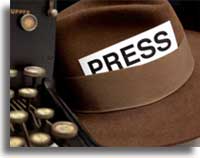
- Panel A : This panel covers research relating to history, philosophy, religious studies and law.
- Panel B: This panel covers research relating to contemporary arts practice, theory in art, design and media, architecture, visual arts, creative writing, music, dance, drama and theatre studies.
- Panel C : This panel covers research relating to art history, conservation of art and textiles, dictionaries and databases, cultural geography, archaeology, classics and library, information and museum studies.
- Panel D : This panel covers research relating to journalism, media and communication studies, cultural studies and popular culture, gender and sexuality, lifewriting, literary and cultural theory, post-colonial studies, text editing and bibliography, English language and literature, linguistics and modern languages.
The Journalist Association of India (JAI) activities
The Journalist Association of India (JAI) activities are articulated among the following priorities:
Journalism |
Indian Institute of Journalism & News Media
The Indian Institute of Journalism & News Media (IIJNM) is one of South Asia's leading post-graduate schools of journalism and media. Located in Bangalore in the heart of India's high-tech industry, the institute offers an excellent curriculum that combines both theory and practice to prepare its graduates for positions in the media industry.City University London and IIJNM have agreed to a Student Exchange Program whereby a select number of students from each other's college will be able to attend the other's program for a full semester without payment of additional tuition fees. The goal is to offer an opportunity for students to learn about the media in the other country, and to expose them to their industry practices. IIJNM students will now have the benefit of being mentored by working journalists from UPIU.com. Students will be part of this program twice an academic year-in October and in February.
